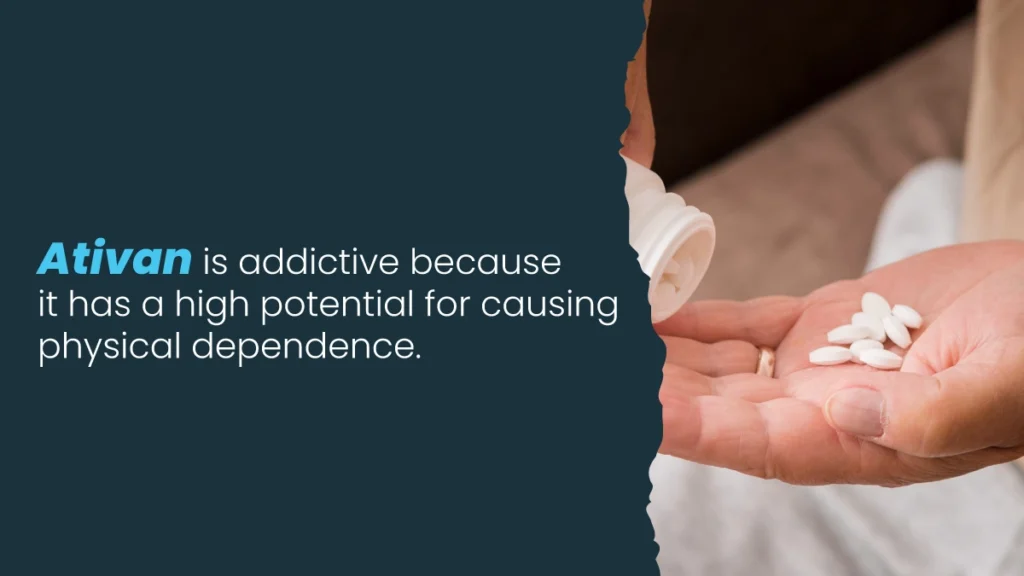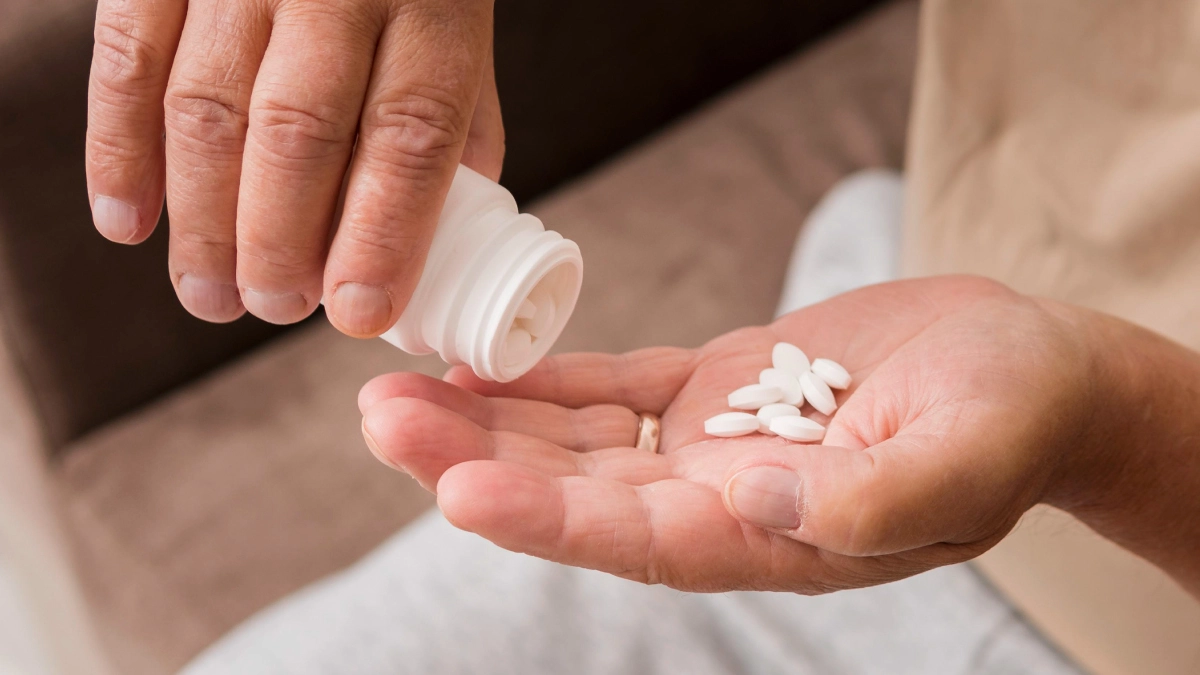Navigating Ativan Addiction: Insights And Support
Ativan addiction poses a significant threat to individuals and their loved ones, affecting mental health and daily functioning. While Ativan is widely prescribed to manage anxiety and panic disorders, its calming effects can lead to misuse and dependence. Recognizing the signs of addiction is vital, as it can pave the way for timely intervention and support.
Read on to gain insights into Ativan addiction and its treatment options. Explore the causes, symptoms, and serious risks associated with misuse and the importance of a strong support system. Whether you or someone you care about is facing the challenges of Ativan addiction, this guide will provide the valuable information needed to reclaim control and foster a healthier, more fulfilling life.
Key Takeaways
Ativan, a benzodiazepine, is prescribed for treating anxiety but carries a significant risk of addiction. Here’s what you need to know:
- Early recognition of Ativan misuse symptoms can lead to timely intervention and more effective treatment.
- Treatment for Ativan addiction often includes detox, therapy, and support systems for lasting recovery.
- Family involvement and ongoing support play decisive roles in successful long-term recovery from Ativan addiction.
At The Haven Detox-New Jersey, we understand the complexities of Ativan addiction and provide effective treatment options. For details, contact (856) 626-5755.

What Is Ativan
Ativan, also known as Lorazepam, is a prescription medication used to treat anxiety disorders. It belongs to a class of drugs called benzodiazepines, which help calm the brain. Doctors may prescribe it to reduce anxiety symptoms, making it easier for patients to relax.
Common Uses Of Ativan
Ativan is commonly prescribed for anxiety, panic disorders, and insomnia. It is also used to calm patients during panic attacks and before surgery. In some cases, doctors prescribe Ativan for controlling seizure disorders, making it versatile in treating various health conditions.
How Ativan Works In The Body
Ativan affects the central nervous system by enhancing a calming brain chemical called gamma-aminobutyric acid (GABA). This action slows brain activity, reducing anxiety and promoting relaxation. Its effects help manage stress-related symptoms, making it helpful in treating anxiety-related conditions.
The Nature Of Ativan Addiction
Ativan is addictive due to its calming effect, which people may rely on. Individuals often misuse this prescription medication to relieve anxiety or stress. Misuse of Ativan in higher doses or for more extended periods increases the risk of dependence and addiction.
Definition Of Ativan Addiction
Ativan addiction is when people misuse this prescription drug for extended periods. Individuals develop a tolerance, requiring higher doses to feel the same effects. This misuse leads to a physical dependence, making it harder to stop using the substance.
Why Ativan Is Addictive
Ativan is addictive because it has a high potential for causing physical dependence. Short-term use of this substance can lead to tolerance, requiring individuals to take greater doses. Long-term use increases the risk of addiction due to its powerful effects on the brain.
Risk Factors And Causes
Ativan abuse happens due to different factors. These include high doses, prescription misuse, and co-occurring disorders. Environmental factors and a family history of a substance use disorder increase the risk of Ativan addiction. Medical conditions also raise the chances of Ativan misuse and overdose.
Individual Vulnerabilities
Some people have a greater risk of Ativan abuse due to individual vulnerabilities. A family history of substance use or medical conditions may increase their chances. These factors make them more likely to misuse Ativan’s sedative effects.
Prescription Misuse
Ativan misuse often starts with using high doses beyond what’s prescribed. Others might misuse it for its calming, soothing effects. This misuse increases the risk of overdose, leading to a higher chance of addiction.
Co-Occurring Disorders
Mental health conditions often raise the risk of Ativan misuse. Those with co-occurring disorders may rely on Ativan to manage symptoms. This increased dependence can lead to higher misuse rates and risk of addiction.
Signs And Symptoms
Each person experiences different signs and symptoms depending on their condition, mental health, and substance use history. These symptoms can vary in intensity, frequency, and duration. Understanding these unique factors is critical to providing personalized care and support.
Physical Signs
Physical signs affect the body and may appear early in addiction. These symptoms vary depending on substance use. Common physical signs may include:
- Fatigue: Feeling tired often without any apparent reason.
- Weight loss: Unexplained and rapid weight loss due to Ativan use.
- Tremors: Shaking, particularly in hands, caused by Ativan withdrawal.
Recognizing these physical signs is essential for early intervention, addressing the underlying issues, and preventing further harm from substance use.
Psychological Signs
Psychological signs impact a person’s mental health, emotions, and thinking patterns. They are often noticeable through mood changes. Common psychological signs include:
- Anxiety: Feeling nervous or restless more frequently than usual.
- Depression: Persistent sadness and loss of interest in activities.
- Paranoia: Excessive suspicion or distrust without logical reasoning.
Addressing these symptoms of Ativan addiction early can improve mental well-being and support recovery efforts.
Behavioral Changes
Behavioral changes relate to how individuals act or respond to situations. These changes are significant signs of Ativan abuse. Common behavioral changes may include:
- Isolation: Withdrawing from friends and family to avoid judgment.
- Lying: Frequent dishonesty to hide addiction or avoid consequences.
- Neglect: Ignoring responsibilities, such as work or school duties.
By identifying these changes, individuals can seek help and begin the journey toward recovery.
Diagnosis And Assessment
Healthcare providers assess Ativan addiction by reviewing the person’s symptoms and usage patterns. They identify physical, emotional, and behavioral signs of dependence. Early diagnosis helps prevent serious health issues and allows individuals to seek effective treatment options.
Self-Assessment Tools
Self-assessment tools help individuals identify potential warning signs of Ativan addiction. These questionnaires assess usage habits, cravings, and withdrawal symptoms. They offer a starting point for recognizing dependence and encourage seeking professional help for a more accurate diagnosis.
Professional Diagnosis
A professional diagnosis of Ativan addiction involves a thorough evaluation by a medical expert. This includes reviewing the individual’s medical history, symptoms, and lifestyle. Professionals use established criteria to confirm addiction and develop a personalized treatment plan for recovery.
The Role Of Family And Friends
Family and friends play a crucial role in recognizing and addressing Ativan addiction. They provide emotional support, identify concerning behaviors, and encourage seeking treatment. Their involvement can make a significant difference in the recovery process.
The Dangers Of Ativan Addiction
Ativan addiction can cause serious side effects, including cognitive impairment and respiratory depression. These side effects may worsen over time, leading to long-term health problems. Immediate medical attention is vital for those experiencing severe side effects from Ativan misuse.
Short-Term Effects
Short-term effects of Ativan include drowsiness, confusion, and impaired coordination. These side effects may lead to accidents or injury. People misusing Ativan may experience cognitive impairment, requiring immediate medical attention if symptoms worsen.
Long-Term Health Consequences
Long-term misuse of Ativan can cause severe side effects, such as cognitive decline and respiratory depression. Chronic use may also result in physical dependence, making it challenging to stop without medical help. Addressing these severe side effects early is essential.
The Risk Of Overdose
An overdose of Ativan can lead to dangerous side effects, including severe respiratory depression. This life-threatening condition requires urgent medical attention. Misuse of Ativan increases the risk of overdose, which can have serious health consequences.
Treatment Options For Ativan Addiction
Ativan addiction treatment includes various programs at treatment centers across the United States. Treatment options include medical detox, inpatient or outpatient rehab, and behavioral therapies. Medical professionals develop personalized plans to meet patient’s needs and provide quality care.
Detoxification Process
Medical detox is the first step in treating Ativan addiction. Under medical supervision, patients safely taper off Ativan to avoid withdrawal symptoms. Detox centers in the United States ensure patients receive proper care throughout this critical phase.
Inpatient Vs. Outpatient Treatment
Inpatient and outpatient rehab programs are available for Ativan addiction treatment. Inpatient programs offer 24/7 care at treatment facilities, while outpatient programs provide flexibility. Each option offers quality care, depending on the patient’s unique needs and medical advice from professionals.
Medication-Assisted Treatment
Medication-assisted treatment (MAT) uses FDA-approved medications to manage withdrawal symptoms and reduce cravings. Medical professionals administer these medications as part of a comprehensive treatment plan. MAT improves the success of recovery in both inpatient and outpatient programs.
Behavioral Therapies
Behavioral therapies, such as cognitive behavioral therapy (CBT), play a central role in treatment. These therapies help patients identify harmful behaviors and develop coping strategies. Treatment programs combine therapy with medical care to address each patient’s needs.
Relapse Prevention Strategies
Preventing relapse in Ativan addiction involves understanding and managing various aspects of recovery. A central step is developing a relapse prevention plan tailored to individual needs. This plan should include identifying triggers, which are situations or emotions that may lead to Ativan use, and strategies to cope with these challenges effectively.
Ongoing support plays a vital role in maintaining recovery. Support groups and peer support can provide encouragement and a sense of community. By connecting with others who understand their struggles, individuals can share experiences, learn coping strategies, and feel less isolated.
Aftercare is essential for long-term success in recovery from Ativan addiction. Regular check-ins with a therapist or attending support group meetings can reinforce positive habits. By prioritizing ongoing support, individuals can stay focused on their goals and reduce the risk of relapse.
Frequently Asked Questions (FAQ)
Ativan addiction poses severe risks and side effects that can affect many aspects of life. Understanding these effects is crucial for anyone using the medication or considering treatment. Here are some common risks and side effects associated with Ativan addiction:
- Increased Tolerance: Users may need higher doses to feel the same effects.
- Withdrawal Symptoms: Stopping suddenly can cause anxiety, seizures, and discomfort.
- Cognitive Impairment: Long-term use can lead to memory and concentration issues.
- Depression: Users may experience worsening depression or mood swings.
- Physical Dependence: The body becomes reliant on the drug for normal function.
Recognizing these risks can help individuals seek help and support effectively.
Seeking help for Ativan addiction is an essential step toward recovery. Several options can provide the necessary support and guidance. Here are some effective ways to find help:
- Consult A Healthcare Professional: They can assess your situation and recommend appropriate treatment options.
- Join A Support Group: Connecting with others facing similar challenges can provide emotional support.
- Consider Outpatient Therapy: This allows for flexible treatment while maintaining daily responsibilities.
- Explore Inpatient Rehab: This option offers intensive support in a structured environment.
- Seek Counseling Or Therapy: A mental health professional can help address underlying issues.
Healing Begins Here: The Haven Detox-New Jersey
At The Haven Detox-New Jersey, we offer an inclusive range of services designed to support your journey to recovery from benzodiazepine addiction.
Our drug and alcohol detox program ensures a safe and comfortable withdrawal experience guided by experienced medical professionals. Our residential rehab provides a structured environment for healing, allowing you to focus on recovery with 24/7 support. We also offer vital nutrients and NAD IV therapy, which help restore your body’s balance and promote mental clarity during your recovery journey.
With our holistic approach to treatment, we understand your struggle with prescription drugs and aim to help you reclaim your life. Call us at (856) 626-5755 and let us guide you towards a restored, more fulfilling future.

